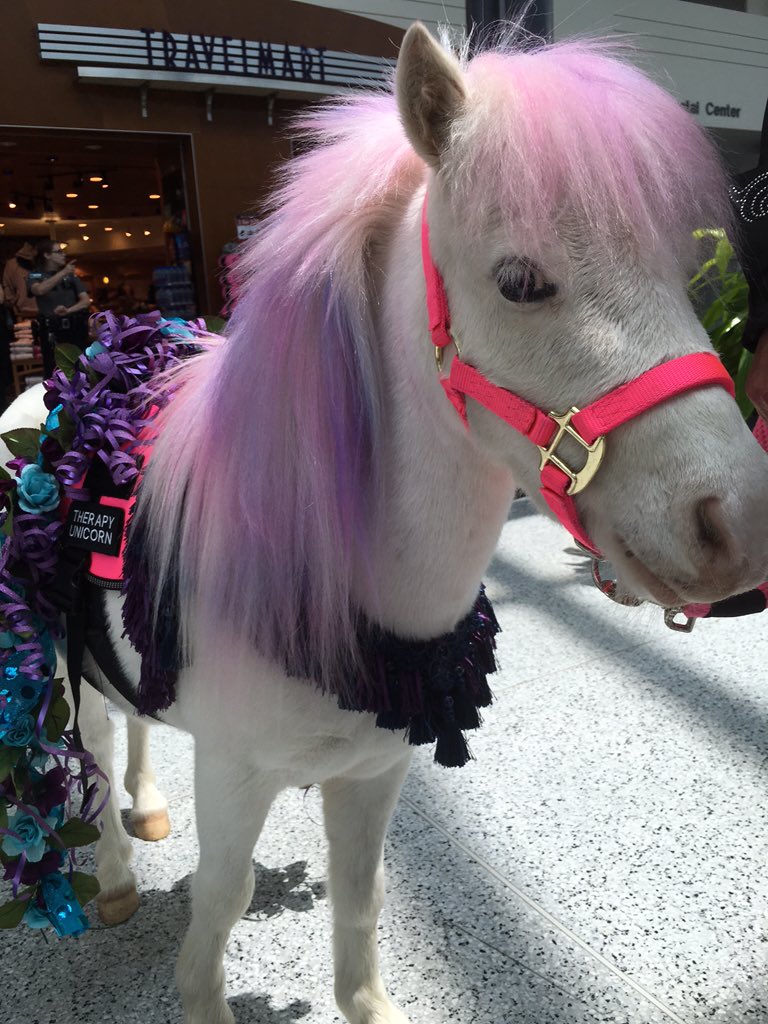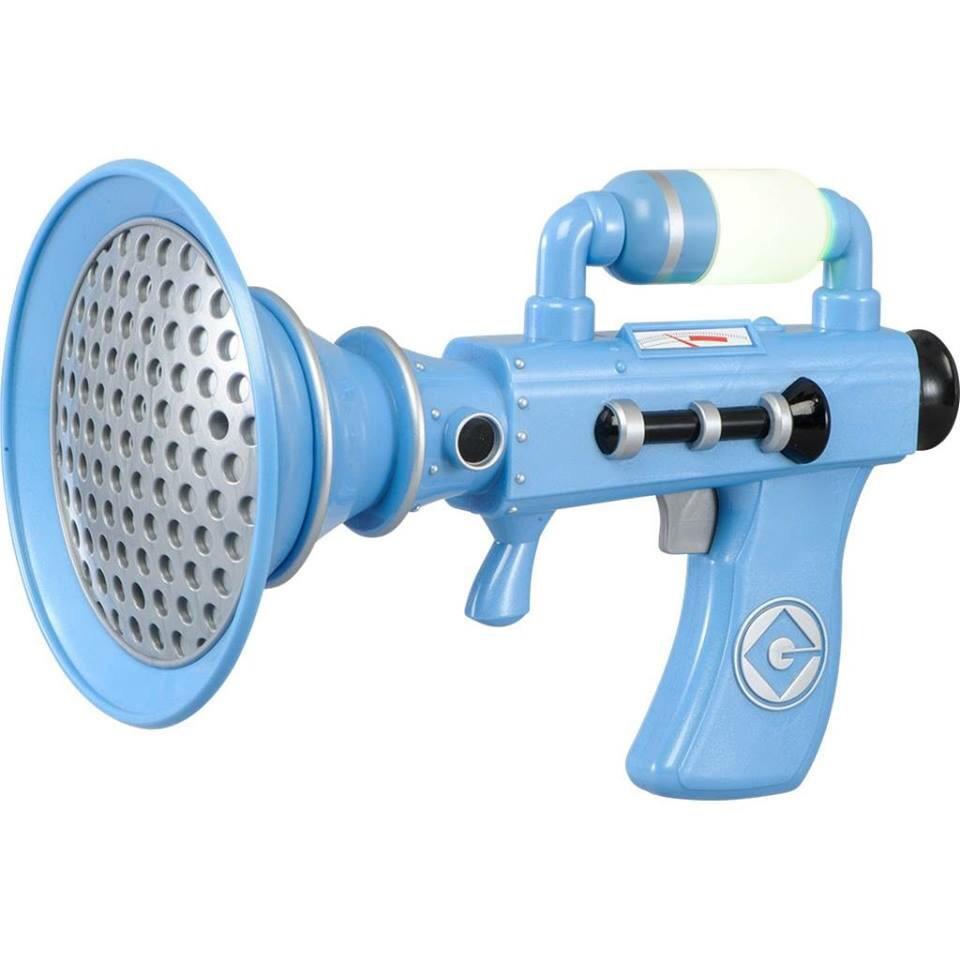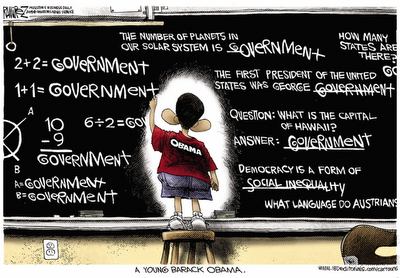I’ve posted several videos about the Keystone Cops of airport security (see here, here, here, here, and here) and here’s another one to enjoy.
Why am I motivated to mock the Transportation Security Administration today?
For the simple reason that I went to the Atlanta Airport yesterday after watching my #1 Georgia Bulldogs win another game.
Yet when I exited the highway to the airport, traffic ground to a halt. It took me about 30 minutes to get to parking (a trip that normally takes about three minutes).
 And then, when I got in the airport, the “Clear” line for accelerated screening was shut down, which required me to instead get in the slower “Pre-check” line (but still faster than the regular line).
And then, when I got in the airport, the “Clear” line for accelerated screening was shut down, which required me to instead get in the slower “Pre-check” line (but still faster than the regular line).
But that line was much longer than normal, and moved much slower than normal, because the bureaucrats required us to take off shoes and remove laptops (things that normally are not required for flyers that have received Pre-check clearance).
So why did I have to endure and extra hour-plus of wasted time, risking my ability to make my flight?
Because some idiot earlier in the day accidentally packed a gun in his carry-on bag and then apparently panicked and grabbed the gun when it was (surprisingly enough) detected by screeners, causing an accidental discharge.
I don’t blame the TSA for engaging in a brief period of heightened security following this incident.
But it was utterly pointless to have a huge police presence on the airport roads hours later (thus slowing traffic to a crawl), along with shutting down the Clear line and eliminating the (comparative) efficiency of the Pre-check line (making it a slow slog).
This is empty “security theater,” particularly since there have already been nearly 5,000 cases this year of passengers forgetting about guns in carry-on bags. So it’s not as if finding a gun is unusual.
What is unusual, of course, is the accidental discharge – and the subsequent TSA over-reaction.
Which gives me an excuse to write about the TSA and the need for reform for only the third time since 2015 (I had one column about the TSA in 2019 and another one in 2016).
We’ll start with a just-published column by J.D. Tuccille for Reason.
…the TSA has proven itself skilled at harassing travelers and freaking out over pocketknives and water bottles while steadfastly failing at its assigned task of making air transportation any safer. The TSA, in short, is an awful example of government in action. …It’s not clear why anybody saw a need for the TSA,
since it’s unlikely that a federal agency would have been any more successful than private contractors at predicting terrorists’ unprecedented use of aircraft as kamikaze weapons. It’s especially unlikely that the federal agency we actually got would have successfully diverted itself from confiscating play-doh to thwarting homicidal fanatics. …What the TSA is good at is high-visibility groping, scanning, and confiscating. Making people drop their pants, take off their shoes, and surrender their shampoo annoys people in a way that says “we’re doing something” without actually accomplishing anything.
Wow, I would suspect he also traveled through Atlanta yesterday, but his article was published Friday.
Next, we have an overall indictment of the TSA. Here are some excerpts from a column by Kevin Williamson for National Review.
The catalogue of the TSA’s sins reads like the diary of the Marquis de Sade, from the sexual abuse of children to the production of child pornography, beside which such workaday offenses as looting travelers’ property and smuggling drugs seem quaint.
This is not a few bad apples — this is a crime syndicate pretending to be a federal agency. …The TSA’s record for providing actual security is practically nonexistent; security testers sneaking mock explosives and weapons past TSA screeners achieved an astonishing success rate of 95 percent. …Amsterdam’s Schiphol airport processes more passengers than does New York’s JFK, and its security process, including something like an El Al pre-board interview in which a well-trained security officer gives passengers the hairy Dutch eyeball, generally takes only a few minutes, whereas traversing JFK can take hours. …We need choice, competition, and accountability. And we also need to fire a few tens of thousands of people, starting with TSA administrator.
So what’s the solution?
David Inserra of the Heritage Foundation explains for FEE that the private sector is a better option.
A private model would allow for strengthened accountability, a decrease in operation costs, enhanced management of labor, and better focus on security threats and problems. …The TSA model is quite uncommon worldwide. The more common models utilize the government as a security regulator
while a contractor or the airport itself provides security. This automatically pushes accountability and competition higher than the current U.S. model. …By looking to examples in Canada and Europe, we can observe how governments spend drastically less yet still manage to meet international aviation standards. These countries show that privately-hired scanning teams can manage personnel far more efficiently than the government and still make a profit. They also cost significantly less—Canada spent about 40 percent less per capita on aviation security than the U.S. in 2014, for example.
Amen.
Here’s the graphic accompanying the article. As you can see, other nations wisely utilize private contractors.
If Americans got better security, perhaps higher costs and longer lines would make it worthwhile.
But that’s not the case, as I’ve previously pointed out (see here, here, and here).
And if that’s not enough, here’s what NBC reported about bomb-sniffing dogs.
Bomb-sniffing K-9 teams at 10 major U.S. airports have failed tests that check how accurately they can detect explosives… New records obtained by KXAS through a Freedom of Information Act request call into question
whether those dog teams are training enough to stay sharp and keep bombs out of airports and off planes… K-9 teams funded by the Transportation Security Administration have failed annual certification tests at 10 large airports 52 times between Jan. 1, 2013, and June 15, 2015, the most recent detailed numbers TSA provided. Some teams failed to find explosives, while others had too many false alarms that could cause unnecessary airport evacuations.
Humans are probably even worse, as Judd Gregg explained in a piece for the Hill.
The TSA failed to detect ninety percent of the bombs and weapons that were passed through its passenger screening system in its last test.
Were the test also applied to baggage placed on planes, it is likely that their failure rate in detecting bombs specifically would be even higher. Thus, an agency that costs the taxpayer $7.5 billion a year, has 40,000-plus screeners and 15,000-plus administrators does not seem to be doing a very good job of protecting passengers on airplanes.
I have other pieces I can cite, but I’ll save them for another day.
Let’s close with an outrageous example of TSA foolishness, as captured by this tweet from Amy Alkon.
P.S. Here are other examples of bone-headed TSA actions.
- Confiscating a plastic hammer from a mentally retarded man.
- Detaining a woman for carrying breast milk.
- Hassling a woman for the unexplained red flag of having sequentially numbered checks.
- Demanding that a handicapped 4-year old boy walk through a metal detector without his leg braces.
- Putting an 8-year old cub scout on the no-fly list.
- Stopping a teenager from flying because her purse had an image of a gun.
- Seizing raygun belt buckles and Kitty Cat keychains.
- Taking a “fart gun” from a child.
P.P.S. I am willing to defend the TSA when the bureaucrats make sensible choices based on cost-benefit analysis.
P.P.P.S. And I am always willing to share some jokes at TSA’s expense (see here, here, here, here, here, here, here, and here).
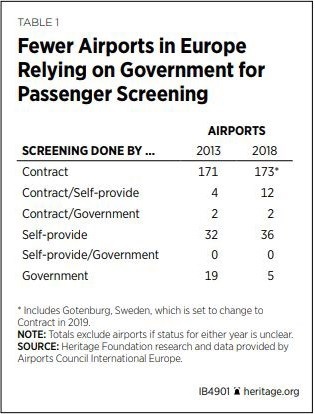
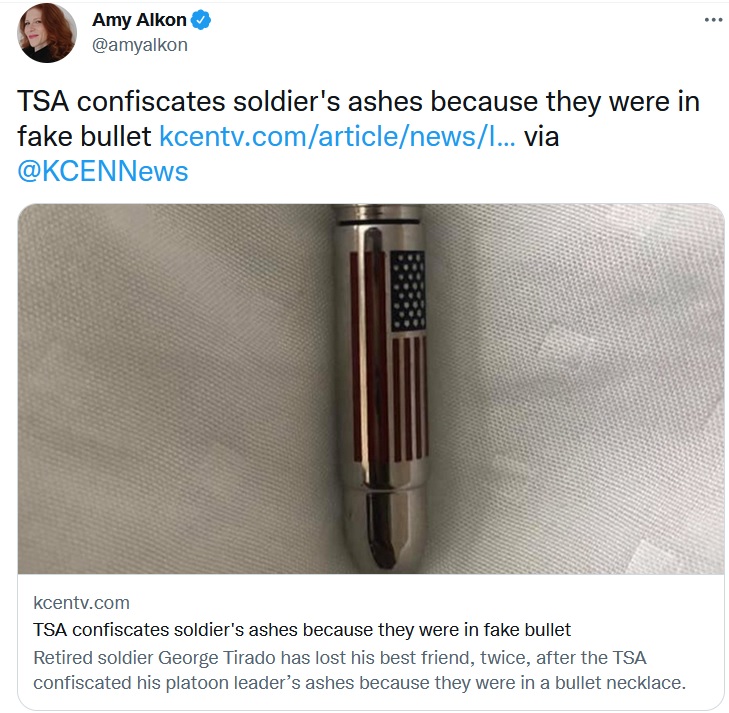


 …Democrats who controlled the Senate were especially eager to gain campaign contributions from tens of thousands of new federal employees. …Legislators and bureaucrats scapegoated the private security companies that had been screening passengers for the airlines. Citing the lapse in security on September 11… It was the federal government, not the private screeners, that set the policy allowing small knives and box cutters to be brought onto planes. Federal guidelines prevented airlines from arming pilots and reinforcing cockpit doors. The feds also stopped the private security firms from using an existing system to identify high-risk passengers, which would have singled out some of the hijackers for special screening.
…Democrats who controlled the Senate were especially eager to gain campaign contributions from tens of thousands of new federal employees. …Legislators and bureaucrats scapegoated the private security companies that had been screening passengers for the airlines. Citing the lapse in security on September 11… It was the federal government, not the private screeners, that set the policy allowing small knives and box cutters to be brought onto planes. Federal guidelines prevented airlines from arming pilots and reinforcing cockpit doors. The feds also stopped the private security firms from using an existing system to identify high-risk passengers, which would have singled out some of the hijackers for special screening.
